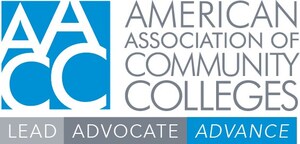
TEMPE, Ariz., March 28, 2024 /PRNewswire/ --
The following is written by Dr. Steven Gonzales, Chancellor, Maricopa Community Colleges, a member of the American Association of Community Colleges:
Arizona, like many states across America, is facing a nurse shortage. The pandemic has taken a toll on existing nursing staff due to staffing shortages, employee burnout and retirement. Despite the number of nursing graduates entering the workforce, it is clear that Arizona needs to catch up with current demand levels.
National nurse shortages already threaten essential health care services, and in Arizona, we are particularly vulnerable to its effects, given our rapidly growing and aging population.
In fact, as of 2022, Arizona ranked in the top five with the largest hospital staffing shortages.
Nationwide, the demand for nurses certainly outweighs the supply. A 2020 nursing workforce survey conducted by the National Council of State Boards of Nursing found that the average age of registered nurses is 52.
In addition, millions of registered nurses are expected to leave the profession by 2030, and the United States will need a minimum of 1.2 million new nurses to meet needs.
Further, with the demand for nurses, the strain is felt at colleges and universities across Arizona and the country. As a result, many institutions have waitlists for nursing programs because of limited faculty and resources to teach students.
Simply put, America needs more nurses.
We are fortunate that the Arizona Legislature recognizes that higher education is only one solution to the problem.
The passage of Arizona House Bill 2691 last year – launching the Nurse Education Investment Pilot Program – is a much-needed step toward addressing the state's critical nurse shortage.
The funding enables the Maricopa County Community College District to equitably allocate money among the eight nursing programs across our system. Over the next three years, the funding will support the expansion and renovations of classrooms, the hiring of 26 new faculty and support staff, innovative retention and student support, and procurement of supplies and lab equipment.
We anticipate that by 2026, our system will produce 5,464 nursing graduates at all levels — certified nursing assistant (CNA), licensed practical nurse (LPN), registered nurse (RN) and bachelor of science in nursing (BSN).
It's clear that the future of our health care system depends on having more skilled professionals enter the market.
As Arizona's top provider of workforce training, Maricopa County Community College District is a pipeline for the nursing profession. Each year, our colleges accept 3,600 students, which includes nursing assistants and LPNs, into our programs.
During the 2022 calendar year, 992 nursing students in our system graduated with an associate in applied science (AAS) in nursing. More than half also graduated with a bachelor's degree through the Concurrent Enrollment Program.
More than 80% of those graduates entered the workforce, and 20% transferred to a university to complete their bachelor's in nursing.
As one of the first community colleges in Arizona to offer baccalaureate degrees, our system understands the urgency to alleviate the demand for the nursing profession.
For this reason, our Bachelor's Advisory Committee has selected GateWay Community College to move forward with the authorization and approval processes to offer a bachelor of science in nursing (BSN) in the fall of 2024.
It's a milestone for the district that'll provide an attainable and affordable pathway for aspiring health care professionals.
The Nurse Education Investment Pilot Program is undoubtedly a step in the right direction; however, more innovative solutions are needed to mitigate the burden on Arizona's strained health care system.
It is crucial to the future of Arizona's health care system to have enough skilled nursing professionals for many years to come.
Uniquely American, community colleges serve more than 10 million students annually, providing critical access to higher education in academic and workforce development. As the voice of the nation's community colleges, the American Association of Community Colleges (AACC), delivers educational and economic opportunity for more than 10 million diverse students in search of the American Dream. Uniquely dedicated to access and success for all students, AACC's member colleges provide an on-ramp to degree attainment, skilled careers, and family-supporting wages. Located in Washington, D.C., AACC advocates for these not-for-profit, public-serving institutions to ensure they have the resources and support to increase economic mobility for all. https://www.aacc.nche.edu/
SOURCE American Association of Community Colleges







Share this article